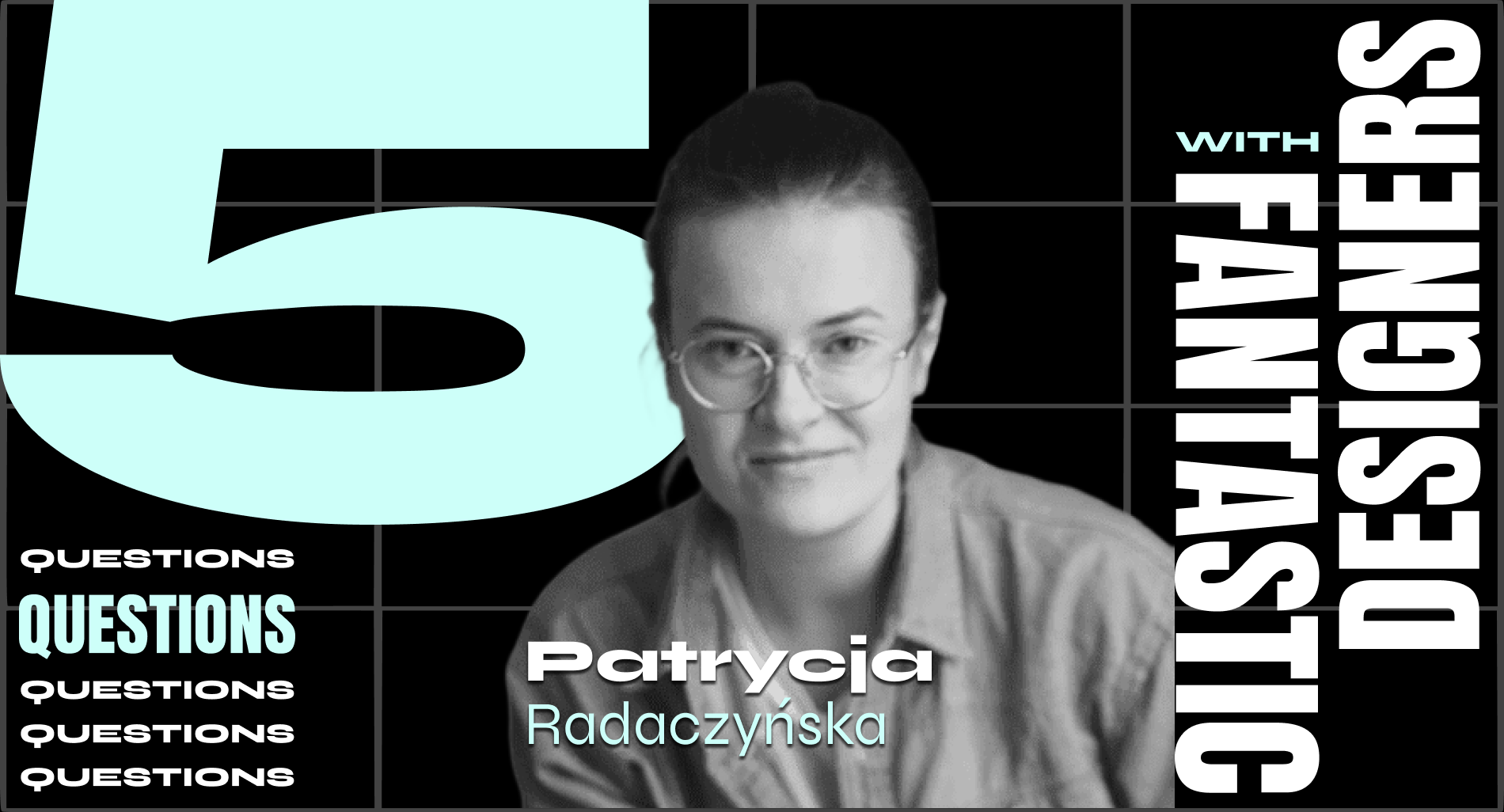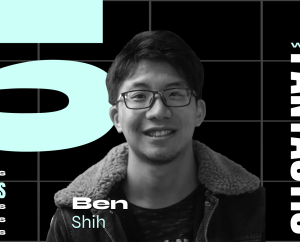Based in Berlin, but originally from Poland, Patrycja Radaczyńska is a front-end engineer, passionate about building design systems. Currently building one at Babbel, previously at Contentful and Brainly. On a daily basis, she is trying to bridge the gap between design and engineering. Tools, process, communication, documentation, listening to users, and finding solutions is what she focuses on. As a musician who started her career in tech pretty late in her life, she is trying to give back something to the community and share her experience by mentoring others. In love with technology that makes life easier, art, books and music. Enthusiast of road trips with her little van.
What design trends do you think will take off this year and in the future?
It is a bit hard to predict what kind of trends we will see in the design industry in the upcoming months or years. I might take a guess when it comes to design systems. Of course, it might be just some combination of what I wish for and where I see interesting things happening right now.
My guess is that design systems will evolve into more automated, personalized systems in the future. As one of my friends says: The future of work is less work. Maybe we will see some influence of AI at some point as well, although I don’t really see such a strong trend in the design system area yet. But the community is paying attention and discussing it.
AI will probably bring us a more personalized user experience and this is where design systems will evolve, I believe. Hopefully, we will have more data to create not only systems but also documentation of those systems. Documentation that people want to use. I would love to see smarter ways of building docs of design systems. This is very needed and I truly believe that we need more innovation in that aspect.
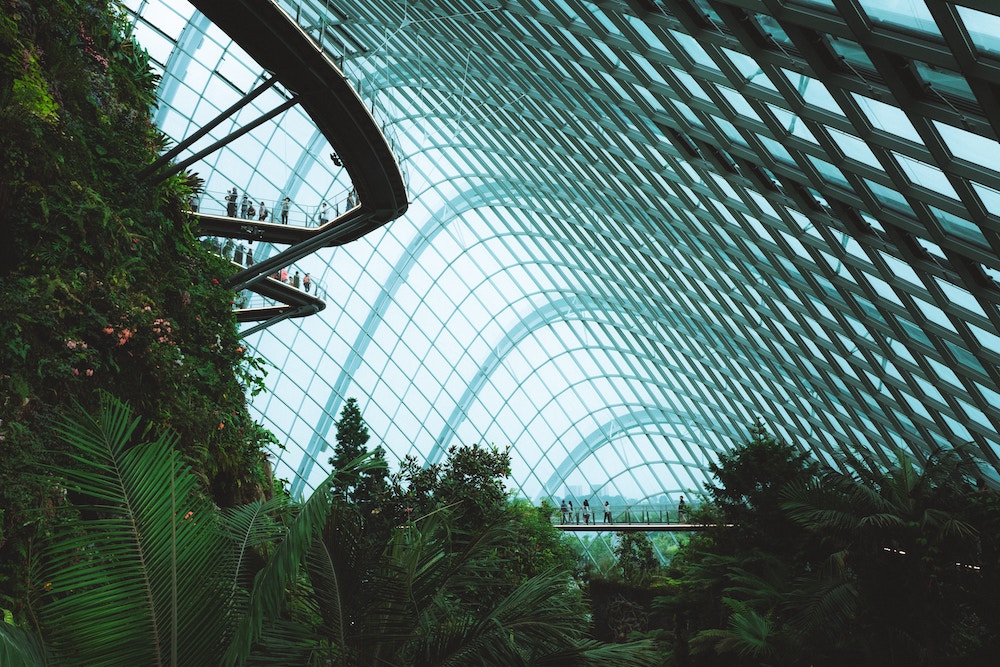
Photo of the Cloud Forest in Singapore, by Douglas Sanchez
Automation is probably a very important future trend in design systems in general. We see so many amazing things happening in this space already, and I hope we will see more of that. The creation of components, streaming information between different systems to create consistent, transparent and useful design systems in an automated way, will allow us to solve problems faster. We will focus on the important problems and not necessarily repetitive tasks.
Design tokens and headless design systems are the future that is already happening. I think we will see more of that this year.
When it comes to making design and the design industry more diverse, equal, and inclusive, what changes are needed or would you like to see?
That is a great question! I could answer from different perspectives.
First: we can try to make our products accessible to our users. Accessibility is a big and complex topic and there are still not enough folks in the industry with relevant expertise. But even if we don’t have a team or specialist in our organization, we can, and should, try to learn and improve our products to make them more accessible for all users. This is where we, as designers and engineers, have an impact. It is a journey, so even small steps matter.
Coming from the engineering world, I see how much we struggle on a daily basis to pass a11y requirements, but accessibility starts way before implementation. Accessibility starts with accessible design. This is where I see the crucial role of designers as a community, to bring more awareness about the topic, and to be advocates for all the users of the product. We need empathy and also education around this topic. I am happy to see that we see more accessibility topics coming up in the industry and also some legal regulations that would actually at some point force us to bring accessibility into our products as a standard.
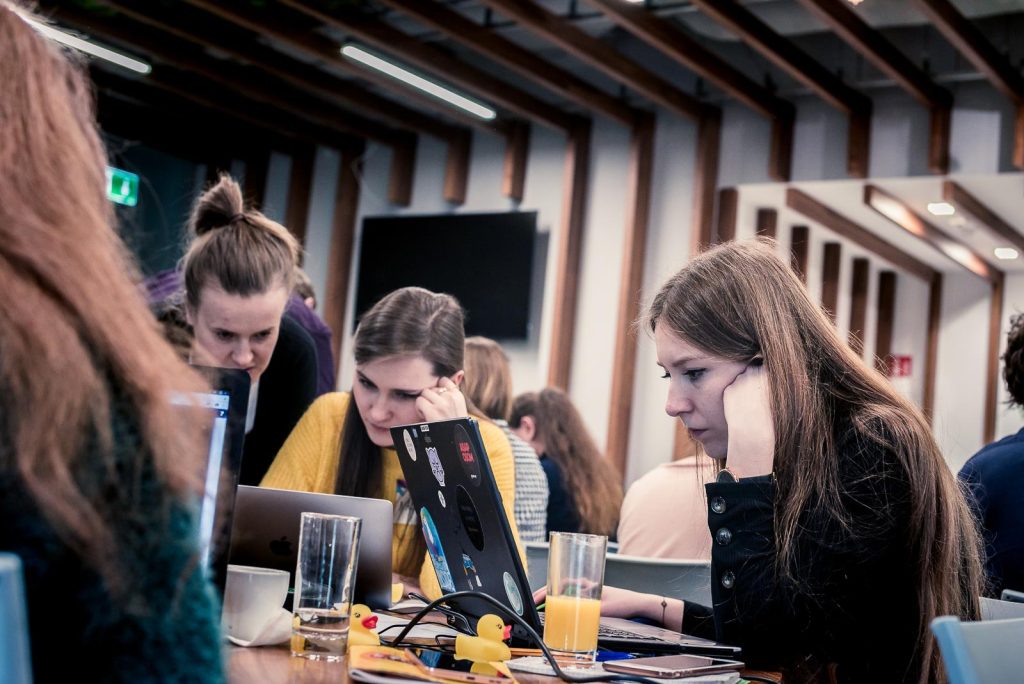
The other perspective is how we can make the tech industry more diverse and inclusive. I started my career in tech almost 10 years ago. I got lucky, met great people on the way, was motivated, and had the time and space to learn new skills. I know that not everyone is that lucky and I was. As professionals with many years of experience, I think we should try to give back to the community and help others with their journey. Supporting others in their development, mentoring, and sharing knowledge is a great way to do that. I am trying to support women who are changing their career paths to start coding, just as I did 10 years ago. I was a mentor in programs like dareIt, and shared my knowledge in many workshops for beginners in the past. It’s so fulfilling to see how helpful this is to others. Some of the people that I met during those events are now part of the industry as engineers. Of course, we need to support each other later, we are responsible for creating an environment where everyone feels welcome – whoever they are and whatever they did in the past.
What are the biggest challenges you had to face as a designer? Have you overcome them? How?
Well, I will answer that as an engineer. I had some challenges along the way, but it is hard to identify the biggest one. I had to learn how to talk to people and how to listen to them, how to sometimes disagree, but be able to still listen to the argument and commit, even if I didn’t agree fully. I see how important it is to be able to lead the conversation and listen to different perspectives, particularly in the design systems sphere. The ability to collaborate and communicate with others is crucial to be able to create value for our end users.
Asking for help can be hard. Working as an engineer, you are trying to solve problems and fix issues all the time. Many times you stand in front of the problem for so long that you don’t know which way to go anymore. One has to learn when to stop banging your head against the wall and ask for help. Building digital products is a team sport, and part of it is asking others for help.
Lastly -and this was difficult – I had to learn how to say “no”. I know now that this is a very important skill, and maybe I learned it too late. It was a challenge to know my limits and set boundaries. Work is important, of course, and I love it, but work-life balance is so much more important in the long run.
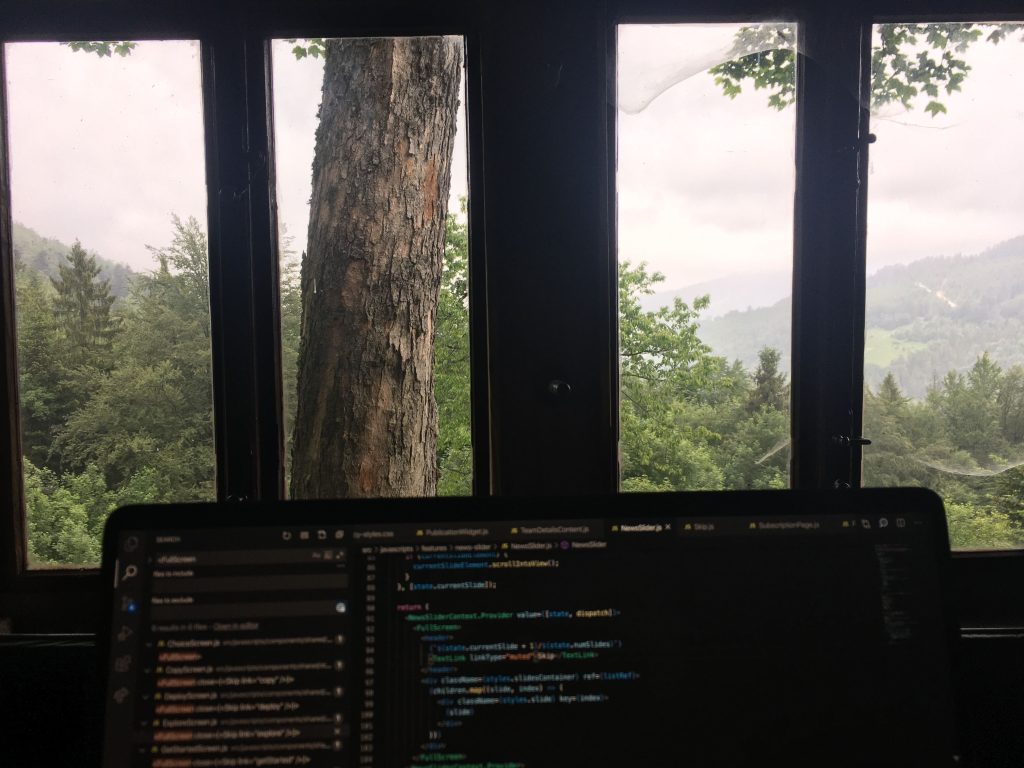
What are 3 things you were not taught at school (if you were formally trained in design) that you wished you had been taught?
I graduated from the Conservatory of Music. It was a significant period in my life and I never regretted that I spent so many years learning how to play an instrument. I ended up (at least for now) as a Front End Engineer who is building design systems for digital products. That’s a funny turn of events I would say. I wouldn’t have expected that when I was back at school. I guess what the education system never showed me is that I can change my profession along the way. It never gave me the confidence to do it, nor trained me on how to learn new things in an effective way. For years, I thought that changing professions might have been a mistake and that I was wasting my time. Of course, it turned out that I can do whatever I feel passionate about. Pretty obvious, but I wish I knew and believed that sooner. I love building design systems, but I know that I might do something different in the future. This is really a huge relief, to be able to think about it without stress. Maybe I will be growing tomatoes! Who knows!

Why do you think design matters?
Design is where everything starts. This is where we shape culture and ideas. We can make important decisions that will affect others to some extent. I will not say that design is always changing the world, but I will say that it can change it, it has the ability to shape reality. That’s why we need emotions and empathy, but also responsibility for the decisions we are taking.
* * *
Patrycja will give a talk at the digital design conference Design Matters 23, which will take place in Copenhagen & Online, on Sep 27-28, 2023. Get your ticket here! If you want to learn more and connect with Patrycja, find her on LinkedIn, Twitter, GitHub and Mastodon.


